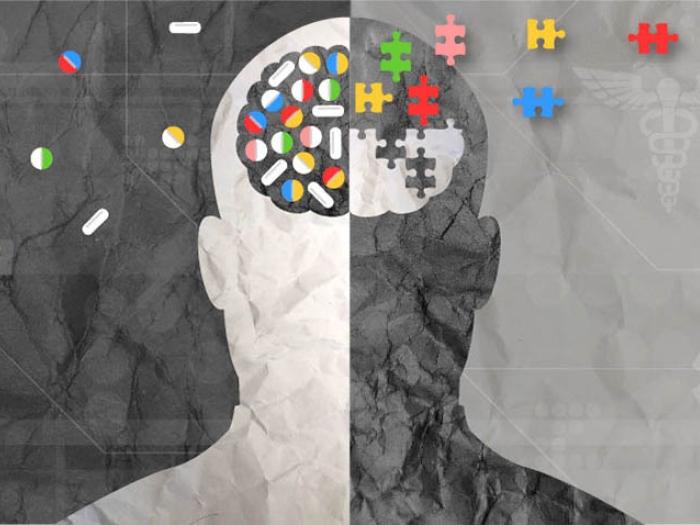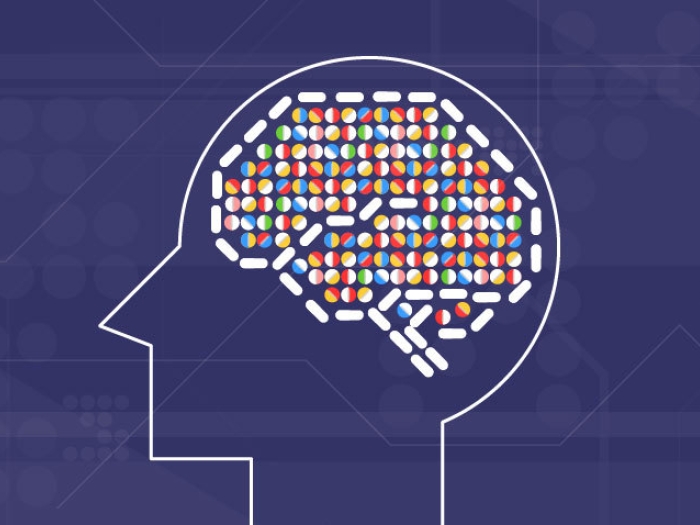In lieu of potentially dangerous (and ineffective) antipsychotics, targeted therapies could be the answer to helping doctors and families ease dementia symptoms.
7:00 AM
Author |

Research long ago identified the dangers of prescribing antipsychotic medications to dementia patients — and the Food and Drug Administration began including black box warnings on the two different classes of the drugs in the mid-2000s — but doctors and families still might not be fully aware of the implications of doing so.
SEE ALSO: Why U.S. Doctors Love Opioids and Hate Marijuana for Chronic Pain
Beyond such medicines being ineffective for treating the symptoms at hand, they can cause added health problems and even, as a 2015 study found, hasten death.
"For many behaviors, it's kind of like killing a fly with a cannon," says Helen Kales, M.D., a professor of psychiatry and director of the Program for Positive Aging at the University of Michigan and the co-author of the study. "People have side effects that worsen the behaviors, and you have to give them even more medication. You end up chasing your tail."
Nonpharmacological strategies to target problem behaviors and/or modify them by changing a patient's environmental factors or helping caregivers to problem-solve ought to be a first-line priority, says Kales, who echoed that point in a paper published last year in BMJ.
She spoke more about her ongoing research and the importance of such alternative methods.
What makes these drugs so problematic for dementia patients?
Kales: We know the risks of antipsychotics include movement disorders, diabetes and risk of stroke; cognition can worsen. Data from meta-analyses of randomized trials and multiple observational studies have shown these drugs are associated with increases in mortality. And the benefits as shown in randomized controlled trials are moderate at best.
Some might say that because the patient has dementia, a higher risk of mortality isn't concerning. But if you have a situation where the person didn't need the drug in the first place, that's really unnecessary.
Beyond that, you have cases where drugs are being used, sadly, for things where there is no data to suggest they work. If somebody is wandering off, there's no drug in the world to treat that except to sedate the person. A non-drug approach would be vastly preferred.
These non-drug approaches aren't really part of the medical-school curriculum. They should be a mainstay of treatment.Helen Kales, M.D.
Why, then, do physicians prescribe them?
Kales: People are stuck between a rock and a hard place in a lot of practice settings.
SEE ALSO: Looking More Closely at Lewy Body Dementia
On one hand, they're being told to reduce the use of such medications because of the bad side effects. On the other, they're confronted with patients who are suffering and families who are exhausted and burdened.
People simply aren't armed with many alternatives. These non-drug approaches aren't really part of the medical-school curriculum. They should be a mainstay of treatment.
Could you talk about the "DICE" model you helped create to encourage avoidance of these drugs?
Kales: What we tried to do with DICE is create a simple algorithm so someone could walk through the thinking process in approaching the problematic behavior.
Describe: We want to fully understand the behavior. Say, "Joe" is agitated. What do you mean by "agitated?" Is this yelling? Or physical movement? Resistance to care? Where is it occurring? What does it look like?
Investigate: In a nutshell, we're playing detective. If I'm trying to give Joe a bath, and he's crying out and swatting at me, is the temperature of the bathwater too hot or cold? Is he in pain? Many people with dementia are in pain, but can't tell us.
Create: What are some simple interventions we could try? Let's make sure the temperature is right before we put him in the bath; move him gradually. We could talk to his doctor about giving him Tylenol if pain is thought to be a factor.
Evaluate: We want to see what worked and what didn't work; what other things could the caregiver try? It's a collaborative problem-solving process.
How can family members and caretakers help doctors execute a plan?
Kales: Caregivers are more empowered than they think. They're on the front lines and have the most contact with people with dementia. Doctors should be asking them questions: "You know Joe; what is he like?" "What has worked in the past to calm him down?"
One of the best ways is training to spot behaviors, especially before they become too severe, and to implement simple interventions for things that might be triggers — a television blaring, people screaming.
That said, are there instances when antipsychotics might be appropriate?
Kales: We would never say never. It's really more about targeting medications for when they're absolutely needed — if there was aggression or psychosis with a chance of risk to the patient or other people, for example.
You're probably not going to be able to get a urine sample from someone to test for a urinary-tract infection if they're swinging at you. Medication can be used to temporarily calm things down so you can investigate.
The hope is always that it's a temporary situation. One of the things we have to keep in mind is that these symptoms come and go. It doesn't make sense to have someone on medication forever.

Explore a variety of health care news & stories by visiting the Health Lab home page for more articles.

Department of Communication at Michigan Medicine
Want top health & research news weekly? Sign up for Health Lab’s newsletters today!





